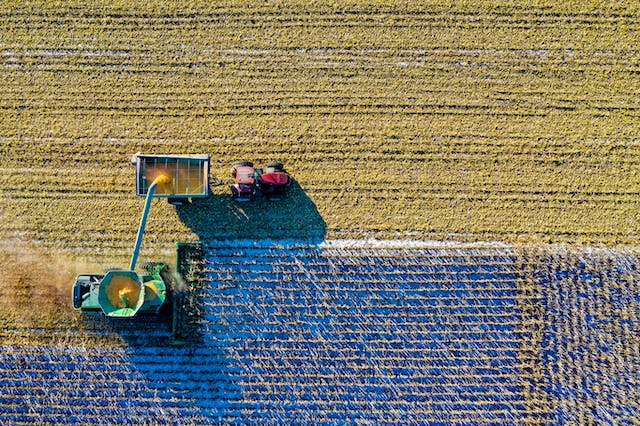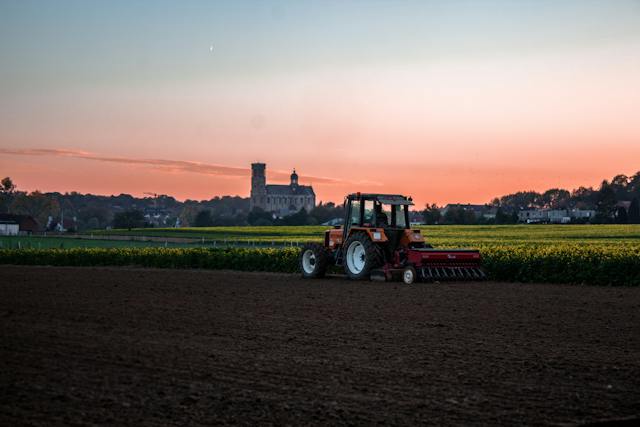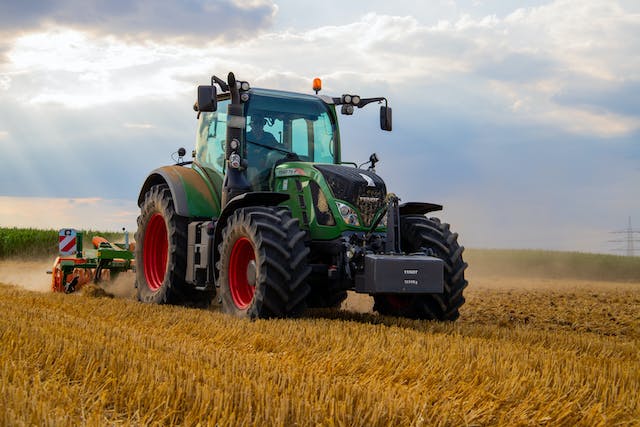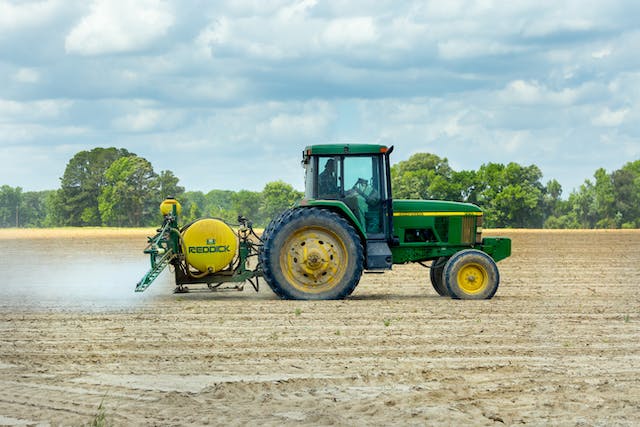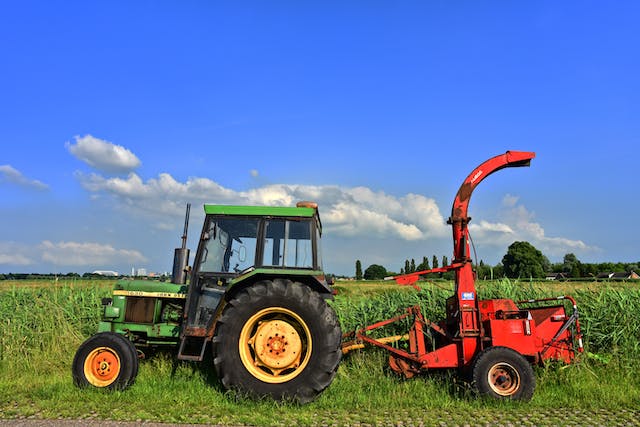How Much Does a Tractor Cost: A Comprehensive Guide
Tractors are essential machines for farmers and agricultural workers. They are used for plowing, tilling, planting, and harvesting crops. However, the cost of a tractor can vary depending on several factors. In this article, we will explore the cost of tractors in 2023, both new and used.
When it comes to buying a new tractor, the cost can be quite high. The price range for a new tractor can vary from $15,000 to $200,000 or more, depending on the size, horsepower, and features. Additionally, the brand and model of the tractor can also affect the cost. It is important to note that while a new tractor may come with a warranty and the latest technology, it may not always be the most cost-effective option.
On the other hand, purchasing a used tractor can be a more affordable option. The cost of a used tractor can range from $5,000 to $100,000, depending on the age, condition, and features. While a used tractor may not have the latest technology, it can still be a reliable and cost-effective option for farmers and agricultural workers. However, it is important to thoroughly inspect a used tractor before purchasing to ensure it is in good condition.
Understanding Tractor Costs
When it comes to purchasing a tractor, there are many factors that influence the cost. Understanding these factors can help buyers make informed decisions about whether to buy a new or used tractor and what price range to expect.
New vs. Used Tractor Costs
One of the biggest decisions buyers must make is whether to purchase a new or used tractor. New tractors typically come with a higher price tag, but they also come with the latest technology and features. Used tractors, on the other hand, may have lower initial costs, but buyers must also consider the potential for higher maintenance and repair costs.
Factors Influencing Tractor Prices
There are many factors that influence the price of a tractor, including:
- Brand and Model: Different brands and models come with different price tags, depending on their features and capabilities.
- Horsepower: Tractors with higher horsepower typically come with higher price tags.
- Attachments: Tractors with additional attachments, such as loaders or mowers, may also have higher costs.
- Age and Condition: Used tractors may have lower costs, but buyers must also consider the age and condition of the tractor, as well as any necessary repairs or maintenance.
Price Range of Tractors
The price range of tractors can vary greatly depending on the factors mentioned above. On the low end, buyers can expect to pay around $10,000 for a small, used tractor. On the high end, new tractors with advanced features and capabilities can cost upwards of $100,000 or more.
Overall, buyers should carefully consider their needs and budget when deciding on a tractor purchase. By understanding the factors that influence tractor costs, buyers can make informed decisions that meet their needs and budget.
Types of Tractors
When it comes to purchasing a tractor, there are various types and models to choose from. Depending on your needs, you can select from compact tractors, utility tractors, and heavy-duty tractors. Each type of tractor has its own unique features and capabilities.
Compact Tractors
Compact tractors are small utility tractors that are ideal for small farms, landscaping, and grounds maintenance. They are typically less than 50 horsepower and have a compact design, making them easy to maneuver in tight spaces. These tractors are versatile and can be used for a variety of tasks, such as mowing lawns, tilling gardens, and moving snow.
Utility Tractors
Utility tractors are larger than compact tractors and are designed for more heavy-duty tasks. They typically range from 50 to 100 horsepower and are used for a variety of applications, such as plowing fields, planting crops, and hauling heavy loads. These tractors are ideal for medium-sized farms and construction sites.
Heavy-Duty Tractors
Heavy-duty tractors are the largest and most powerful type of tractor. They are designed for heavy-duty tasks, such as pulling large implements and powering heavy machinery. These tractors typically have over 100 horsepower and are used for large-scale farming and construction projects.
When selecting a tractor, it’s important to consider your specific needs and the tasks you will be using the tractor for. Compact tractors are ideal for small-scale tasks, while utility tractors are suitable for medium-sized projects. Heavy-duty tractors are best for large-scale operations. Keep in mind that the cost of a tractor will vary depending on the type, size, and features.
Key Tractor Features
When it comes to purchasing a tractor, there are several key features to consider. Here are some of the most important factors to keep in mind:
Horsepower and Performance
One of the most critical aspects of a tractor is its horsepower rating. The horsepower of a tractor determines how much power it can generate, which in turn affects its performance. The higher the horsepower rating, the more powerful the tractor will be.
In addition to horsepower, other performance factors to consider include the tractor’s torque, speed, and fuel efficiency. These factors can impact how efficiently the tractor performs its tasks and how much fuel it consumes.
Attachments and Accessories
Tractor attachments and accessories can greatly enhance the functionality of a tractor. Some common attachments include front-end loaders, backhoes, and mowers. These attachments can help with tasks such as digging, grading, and mowing.
When considering attachments, it’s important to ensure that they are compatible with the tractor and that they meet the specific needs of the user. Some tractors may come with extra features, such as power take-off (PTO) capabilities, which allow for the use of additional attachments.
Technology and Design
The technology and design of a tractor can greatly impact its performance and ease of use. Some tractors may come equipped with advanced features such as GPS navigation or automatic steering. These features can help increase efficiency and accuracy when performing tasks.
The design of a tractor can also impact its functionality. For example, tractors with a cab may provide better visibility and comfort for the user. Additionally, the design of the tractor may impact its maneuverability and ease of use in tight spaces.
Overall, when considering the purchase of a tractor, it’s important to carefully evaluate the horsepower, attachments, technology, and design features to ensure that the tractor meets the specific needs of the user.
Tractor Brands and Manufacturers
Popular Tractor Brands
When it comes to purchasing a tractor, there are many brands and manufacturers to choose from. Some of the most popular tractor brands include John Deere, Case IH, Kubota, Mahindra, New Holland, and Massey-Ferguson. Each of these brands has its own unique features and benefits, and it is important to carefully consider each one before making a purchase.
John Deere is a well-known tractor brand that is known for its durability and reliability. They offer a wide range of tractors that are suitable for both residential and commercial use. Case IH is another popular brand that offers a variety of tractors for different applications, including farming, construction, and landscaping.
Kubota is a Japanese manufacturer that has been producing tractors for over 50 years. They are known for their compact and versatile tractors that are perfect for small farms and residential use. Mahindra is an Indian manufacturer that offers a range of tractors that are designed for both small and large-scale farming operations.
New Holland is a brand that is known for its high-quality tractors that are designed for maximum performance and efficiency. Massey-Ferguson is another popular brand that offers a range of tractors that are suitable for different applications, including farming, construction, and landscaping.
Comparing Brand Costs
When comparing tractor brands, it is important to consider the cost of each brand. The cost of a tractor can vary depending on the brand, model, and features. Some brands may be more expensive than others, but they may offer more advanced features and better performance.
For example, John Deere tractors are generally more expensive than other brands, but they are known for their durability and reliability. Kubota tractors are generally less expensive than other brands, but they may not offer the same level of performance and features.
When comparing brand costs, it is important to consider your specific needs and budget. It is also important to consider the long-term cost of ownership, including maintenance and repair costs. By carefully comparing different brands and models, you can find a tractor that meets your needs and fits within your budget.
Ownership Costs
When considering the purchase of a tractor, it is important to factor in the ownership costs beyond the initial purchase price. These costs can include maintenance and repairs, as well as financing and budgeting.
Initial Purchase Price
The initial purchase price of a tractor can vary greatly depending on the size, features, and brand of the tractor. For example, a small, basic tractor may cost around $15,000, while a larger, more advanced model can cost upwards of $100,000. It is important to carefully consider the needs of the farm or business and choose a tractor that meets those needs without breaking the budget.
Maintenance and Repairs
Maintenance and repairs are an ongoing cost of tractor ownership. Regular maintenance, such as oil changes and filter replacements, can help prevent costly repairs down the line. However, unexpected breakdowns and repairs can still occur, so it is important to budget for these expenses. The cost of maintenance and repairs can vary depending on the age and condition of the tractor, as well as the availability of parts and labour. You will also need to consider the cost of any parts you might need during maintenance, such as oem aftermarket solenoids and other engine parts. Purchasing your own parts from a reputable seller can also save you money, as you will only need to pay a professional the labour to install them, rather than getting them to source the parts on your behalf.
Financing and Budgeting
Financing options for tractors can include loans, leases, and financing through the manufacturer. It is important to carefully consider the terms and interest rates of these options to ensure they fit within the budget. When budgeting for tractor ownership costs, it is important to consider not only the initial purchase price but also ongoing maintenance and repair costs, as well as any financing payments.
In summary, tractor ownership costs can include the initial purchase price, ongoing maintenance and repair costs, and financing payments. It is important to carefully consider these costs and budget accordingly to ensure the tractor is a sound investment for the farm or business.
Practical Considerations
When considering the cost of a tractor, there are several practical factors to take into account. These factors can greatly affect the overall cost and performance of the tractor.
Size and Weight for Tasks
The size and weight of the tractor should be considered based on the tasks it will be used for. For heavy loads and commercial farming operations, a larger and heavier tractor may be necessary. However, for smaller farms or lighter tasks, a smaller tractor may be more appropriate.
Durability and Longevity
Durability and longevity are important factors to consider when purchasing a tractor. A tractor with a longer lifespan will require less maintenance and replacement costs in the long run. It is important to choose a tractor with high-quality materials and construction to ensure its longevity.
Operating Hours and Usage
Operating hours and usage should also be taken into account when considering the cost of a tractor. For commercial farming operations with high operating hours, a tractor with a higher engine capacity may be necessary. On the other hand, for lighter usage, a smaller engine capacity may suffice.
Additional considerations may include the type of attachments needed for the tractor, such as a loader, rake, or backhoe. The cost of these attachments should also be factored into the overall cost of the tractor. Tires, four-wheel drive, and enclosed cabs are other features that may affect the cost of the tractor.
For heavy-duty tasks, a track tractor with caterpillar tracks may be necessary. However, for lighter tasks, a regular four-wheel-drive tractor may suffice. It is also important to consider the drive type, as gas-powered tractors may be more cost-effective for smaller farms, while diesel-powered tractors may be more appropriate for commercial farming operations.
Overall, when considering the cost of a tractor, it is important to take into account the specific needs and usage of the tractor. By carefully considering these practical factors, one can choose a tractor that is both cost-effective and efficient for their needs.
Frequently Asked Questions
What is the price range for new tractors?
The price range for new tractors varies greatly depending on the brand, model, and size. Small tractors suitable for residential use can cost as little as $10,000, while larger commercial tractors can cost upwards of $100,000 or more.
What factors influence the cost of a tractor?
Several factors can influence the cost of a tractor, including its size, horsepower, brand, and features. Tractors with more horsepower and features are generally more expensive than smaller, basic models.
How does the size and horsepower of a tractor affect its price?
The size and horsepower of a tractor are two of the most significant factors that influence its price. Larger tractors with more horsepower are generally more expensive than smaller models. Additionally, tractors with larger engines and more horsepower are typically more fuel-efficient, which can save money in the long run.
What are the average prices for used tractors?
The average price for a used tractor depends on its condition, age, and features. Small used tractors suitable for residential use can cost as little as $5,000, while larger commercial tractors can cost upwards of $50,000 or more.
How much can I expect to spend on a tractor for small-scale farming?
For small-scale farming, a basic tractor with a horsepower range of 20-50 and minimal features can cost between $10,000 and $30,000. However, the cost can vary depending on the specific needs of the farmer.
What are the typical costs associated with tractor maintenance and parts, such as tires?
The cost of tractor maintenance and parts can vary depending on the brand and model of the tractor. Routine maintenance tasks such as oil changes and filter replacements can cost a few hundred dollars per year. However, more significant repairs such as engine or transmission replacements can cost several thousand dollars. The cost of new tires can also vary depending on the size and brand, with prices ranging from a few hundred to several thousand dollars per tire.


